Palavras-chave:
sur corporal, corporeidad, contexto, capacidades, práctica pedagógica.Resumo
El presente texto parte de una concepción fenomenológica, en el ejercicio hermenéutico para identificar elementos de la cultura como indicadores del pensamiento propio, orientado hacia la
crítica de la ciencia, determinada por cada momento histórico como fundamento sociocultural, para transformar la sociedad desde la educación y la pedagogía, en una apuesta por la reafirmación cultural, en el reconocimiento de los saberes de cada comunidad, en nuestro territorio, lo cual implica repensar el lugar del maestro hoy, el cual privilegia la diferencia y la singularidad dentro de la esfera de lo pluricultural, para orientar el sentido de su quehacer, desde la investigación, ante los retos del siglo XXI. La lectura desde América Latina, desafía las concepciones del mundo en relación con la corporeidad, la motricidad y lo corporal, ¿Cómo sentimos y pensamos el mundo en el Sur? implica ejercicios de indagación, deconstrucción y reconstrucción en torno a la construcción de conocimiento alrededor de la educación física, la recreación y los deportes. Pensar la educación de este tiempo, considera el saber escolar, configurado en la práctica pedagógica, para comprender las problemáticas actuales, a partir del descubrimiento de capacidades de acuerdo a la individualidad de cada ser, para ofrecer alternativas a las búsquedas y sentidos de las geo pedagogías centradas en los territorios, en las nuevas teorías, contextos y nuevas problematizaciones de la realidad.
Downloads
Referências
Díaz, A. et al. (1993). Desarrollo Curricular Para la formación De maestros Especialistas En educación Física. Madrid: Gymnos.
Fernández, Benito. (2009), Los movimientos sociales de “objetos” a “sujetos” políticos. Nuevos desafíos para la educación Popular. Ponencia presentada al Encuentro de Teatro del Oprimido y Educación Popular “AUGUSTO BOAL”: “Educación Popular, Movimientos Sociales y Construcción Democrática”, MEPB/Red TDO, Oruro 5 al 7 de noviembre. Recuperado de: http://praxisenamericalatina.org/7-11/bolivia.html
Foucault, M., & Deleuze, G. (1972). Les intellectuels et le pouvoir. L´Arc, (49), 3-10.
Freire, P. (1996). Política y Educación. Madrid: Siglo XXI.
Freire, P. (1997). Pedagogía de la Autonomía. México DF: Siglo XXI. Recuperado de www.buenosaires.gob.ar/areas/salud/dircap/mat/matbiblio/freire.pdf
Freire, P. (1997). La educación en la ciudad. México: Siglo XXI.
González, R., & Taviria, G. (2011). Phenomenology of the Intersection between Body and World in Merleau-Ponty. Ideas y valores, (145), 113-130. Bogotá, Colombia: Universidad Autónoma del estado de México. Recuperado de: http://www.scielo.unal.edu.co/scielo.php?script=sci_abstract&pid=S0120-00622011000100006&lng=es&nrm=iso&tlng=en
Horkheimer, M. ([1932] 2003). Teoría Crítica (3ra reimp). Buenos aires: Amorrortu. Recuperado de: https//www.olimon.org/uan/horkheimer-teoria_critica.pdf
Kemmis, S. (1986). En H. Cerda (2011). Los Elementos de la Investigación. Bogotá, Colombia: Magisterio.
Inciarte, A., & Barbera, N. (2012). Fenomenología y hermenéutica: dos perspectivas para estudiar las ciencias sociales y humanas. Multiciencias, 12(2), 199-205. Recuperado de http://www.redalyc.org/pdf/904/90424216010.pdf
Lucio, R. (1989). Educación y pedagogía, Enseñanza y Didáctica: diferencias y relaciones. Revista de la universidad de la Salle, (17), 35-46.
Martínez, C. (2008). Hacia una pedagogía del cuerpo. Itinerario de una experiencia. Bogotá, D.C.: IDEP.
Nussbaum, M. (2012). Crear Capacidades. España: Paidós.
Parker, C., & Estenssoro, F. (2010). El Desafío del Conocimiento para América Latina. LOM Ediciones. Santiago de Chile.
Pineda, D. (2008). La Construcción del Oficio de Investigador: Una perspectiva Sherlockiana. Bogotá, D.C.: Beta.
Samacá, I. (2014). Otra Pedagogía…Como alternativa de Reconstrucción Social. Memorias del I Congreso Binacional de Pedagogía. Anclajes y Prospectivas. Recuperado de: http://service.udes.edu.co/congreso/memorias.pdf
Wallerstein, I. (2005). Análisis de Sistemas-Mundo. Una Introducción. México: Siglo XXI. Recuperado de: http//perio.unlp.edu.ar/catedras/.../historia_xx_2013_analisis_ del_sistema_mundos-parte1




